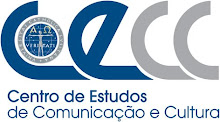Opening session: 15.00 - 15.15
General topic: From Body to Mind to Culture (Embodiment and the unification of science and humanities)
Mark Turner: The Embodied Mind and the Origins of Human Culture
Alexandre Castro Caldas: The neurophysiologic foundations of human cognition
Peter Hanenberg: Cognitive Culture Studies – a path toward the unification of science and humanities
Morning session: 10.00-13.00
General topic: Culture Studies in the Age of Cognitive Science
Per Aage Brandt: What is human culture? From cognitive unity to cultural diversity (and back again)
Ansgar Nünning: Crises and Catastrophes: The Uses of Cognitive Metaphor Theory for the Study of Culture
Augusto Soares da Silva: What is in a word? Linguistic representations, culture(s) and the negotiation of meaning
Ana Margarida Abrantes: Narrative – a key concept for cognition and culture










